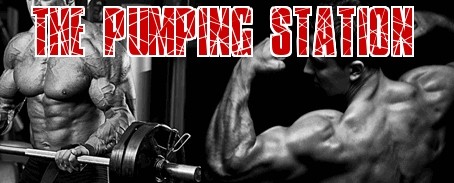8 Vitamins That Everyone Should Include In Their Diet
If you're focused on working out and are aiming for certain results, such as losing weight or building muscle, then taking care of what you fuel your body with is essential. Monitoring your calorie, protein and fat intake is important, and this will be a leading factor in how your body composition changes over a period of time. It's important to know that just watching your calories is not going to necessarily be the leading factor in achieving your body goals. For a more overall health improvement, adding certain vitamins and minerals to your diet will have a more profound effect when paired with a healthy lifestyle.
Whilst a lot of vitamins can be found naturally in food, it is important to consider taking health supplements to ensure you get your recommended daily dose. Here are some of the main vitamins you should consider adding into your diet to help promote proper body function, as well as keeping your energy levels up and to fight off infection and illnesses.
Vitamin B1 (Thiamine)
The main purpose of vitamin B1 is to help your body use the carbohydrates that you consume every day. Vitamin B1 also helps to maintain nerve transmission in your cells. Some of the best natural sources of B1 include sunflower seeds, lentils, black beans and yellowfin tuna.
Vitamin B2 (Riboflavin)
A variation of the B vitamin, riboflavin is essential in helping your body break down and process protein, fats and carbs and helps to promote a healthy skin complexion. Vitamin B2 can be found in milk, with one glass providing almost 30% of your daily needs.
Vitamin B3 plays a key role in producing energy and maintaining the nervous system, as well as aiding in a healthy digestive system. Chicken breast is a great source of vitamin B3, with turkey breast, yellowfin tuna and halibut also providing good levels of the vitamin.
Biotin
Biotin is a nutrient that allows your body to maximise the use of other nutrients and help to maintain your red blood supply. Your body relies on red blood cells to transport oxygen throughout the body, so is important for those regularly working out. Unfortunately, biotin isn't in high amounts in many foods, so it is best to take good health supplements to make sure you are getting enough.
Vitamin A
Also known as retinol, vitamin A has the function of ensuring healthy vision and helps to keep your immune system strong. Carrots are a great source of vitamin A, with a single cup providing over 600% of your daily needs.
Vitamin D
Known as the ‘sunshine vitamin' as it is naturally produced when our bodies are in direct sunlight, vitamin D supplements also aid in the absorption of calcium to ensure healthy, strong bone growth. Good sources of vitamin D can be found in milk, salmon and eggs.
Vitamin E
Vitamin E is a nutrient that acts as an antioxidant within the body. Whilst promoting a healthy immune system, vitamin E also helps the flow of blood and repairing body tissue, which is essential for workout recovery. Sunflower seeds provide a good source of vitamin E, as well as almond and spinach.
Vitamin K
Vitamin K is important for ensuring your blood clots. If you were to cut or injure yourself and you were low in vitamin K, it could turn into a serious situation. Kale is a very good source to get your vitamin K intake, with one cup providing over 1000% of your daily needs.
Click Here to Sign Up for Your Free Bodybuilding Magazine Subscription
